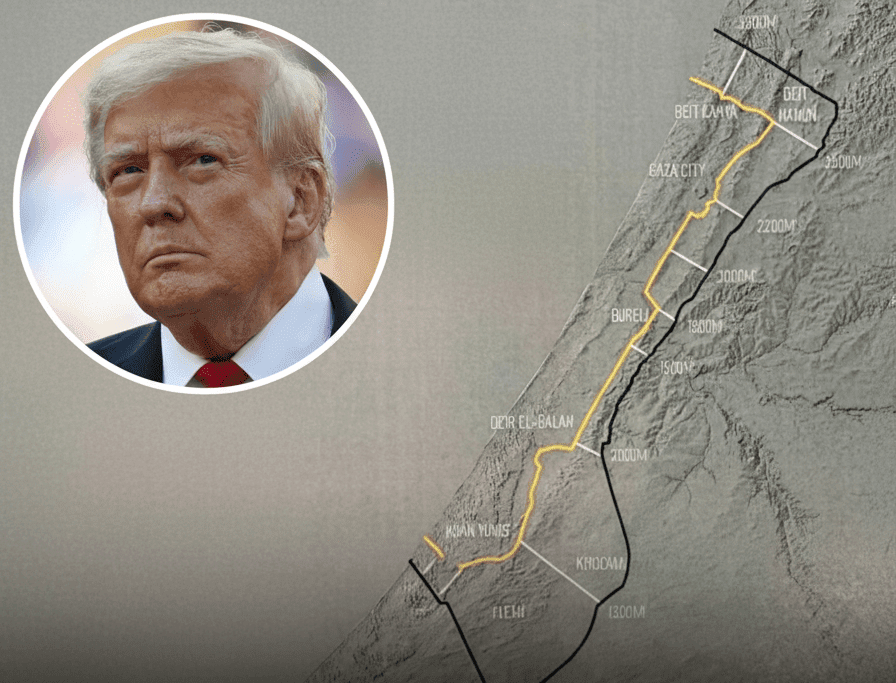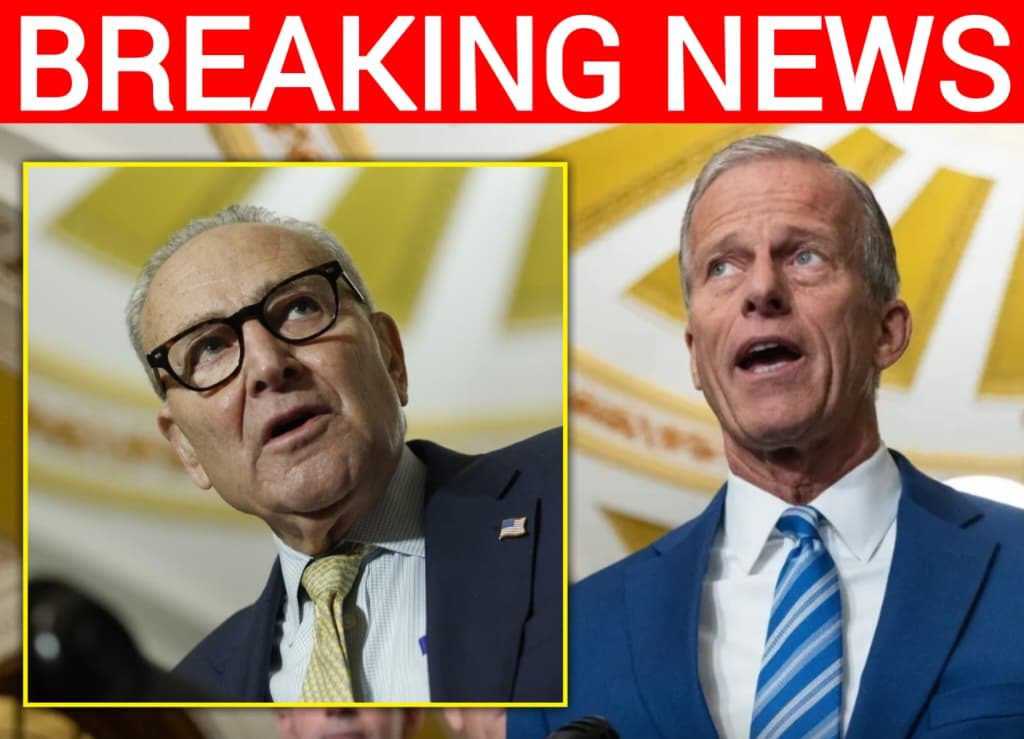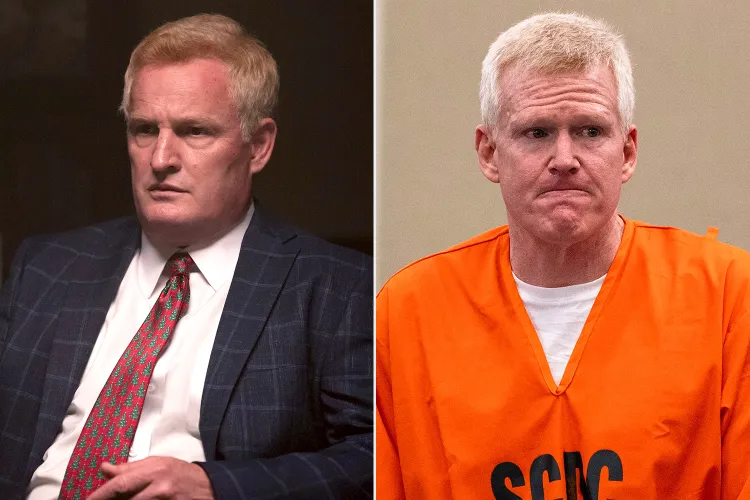President Trump Says Israel Has Agreed to an ‘Initial Withdrawal Line’ in Gaza, With Cease-Fire and Hostage Exchange to Begin Once Hamas Confirms the Deal
In a statement that could mark a major turning point in one of the most protracted conflicts of modern times, President Donald Trump announced that Israel has agreed to an “initial withdrawal line” in Gaza — a key component of a potential cease-fire and hostage exchange deal currently under negotiation. The announcement came late Friday night through Trump’s Truth Social account, where he described the agreement as a historic first step toward ending what he called “a 3,000-year catastrophe.”
According to Trump’s statement, Israeli leaders have tentatively accepted the proposed withdrawal line, which outlines the first phase of de-escalation in Gaza. The plan, shared with Hamas through intermediaries, includes a conditional cease-fire and the staged release of hostages once Hamas formally confirms its participation. “After negotiations, Israel has agreed to the initial withdrawal line, which we have shown to, and shared with, Hamas,” Trump wrote. “The next step will be Hamas’ confirmation of the plan, at which point the hostage releases and cease-fire will begin.”

While the details of the proposed withdrawal line have not been made public, officials familiar with the negotiations described it as a strategic shift designed to ease tensions without compromising Israeli security. The agreement reportedly involves a phased pullback from certain areas of northern and central Gaza, while maintaining Israeli oversight of humanitarian corridors and monitoring zones.
The announcement immediately sent ripples across global media and diplomatic circles, marking the most significant sign of movement in months of stalled talks. For families of hostages and civilians caught in the crossfire, the news offered a rare glimmer of hope amid the devastation. “This could finally mean our loved ones come home,” said one relative of an Israeli hostage in a brief statement to reporters. “We just want this nightmare to end.”
Hamas has not yet issued an official response to Trump’s claim, though sources close to the talks suggest the group has received the plan through Qatari and Egyptian mediators. The White House has not released further comment, leaving it unclear whether the announcement reflects a finalized agreement or a conditional step still awaiting formal endorsement.
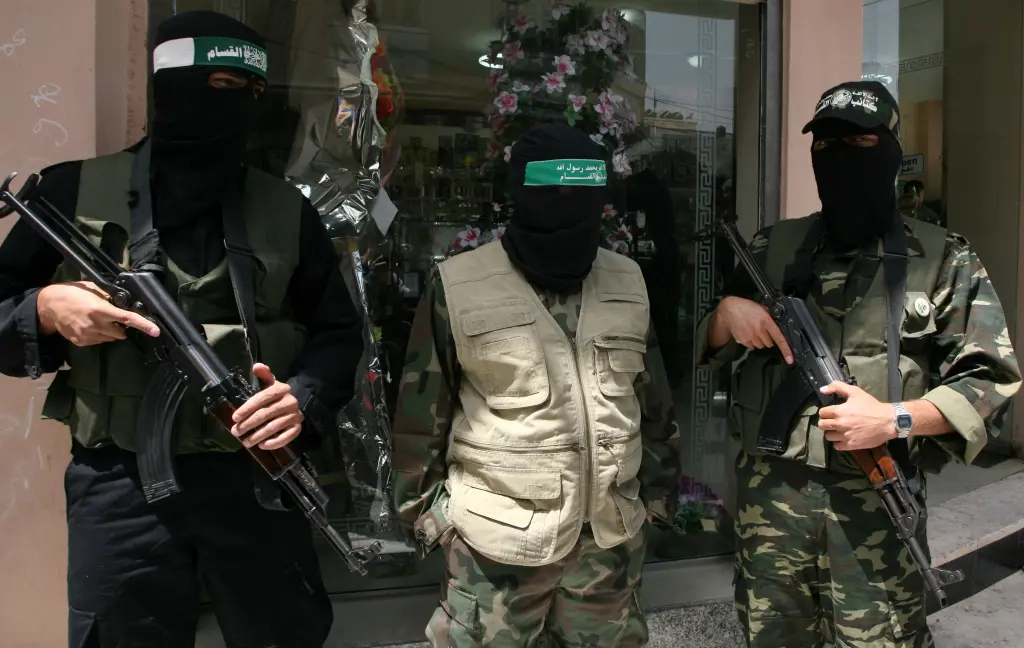
For Trump, who has positioned himself as a key broker in Middle East diplomacy since his return to the presidency, the statement underscores his administration’s ongoing focus on reshaping regional politics through direct, pragmatic negotiations. His previous efforts — including the Abraham Accords, which normalized relations between Israel and several Arab states — remain among his most cited foreign policy achievements.
If confirmed, the new Gaza proposal could represent the most significant diplomatic breakthrough in years. The conflict, which has seen repeated cycles of violence and fragile cease-fires, continues to take a heavy toll on civilians. Humanitarian agencies have warned of worsening conditions across the Gaza Strip, where access to food, water, and medical aid has become increasingly difficult amid the ongoing fighting.
Trump’s announcement framed the potential deal not just as a diplomatic victory but as a moral and historical resolution. “This agreement will mark the beginning of the end of a 3,000-year catastrophe,” he wrote, referencing the deep-rooted historical and religious dimensions of the Israeli-Palestinian conflict. “Both sides have suffered greatly. It’s time for a permanent peace.”
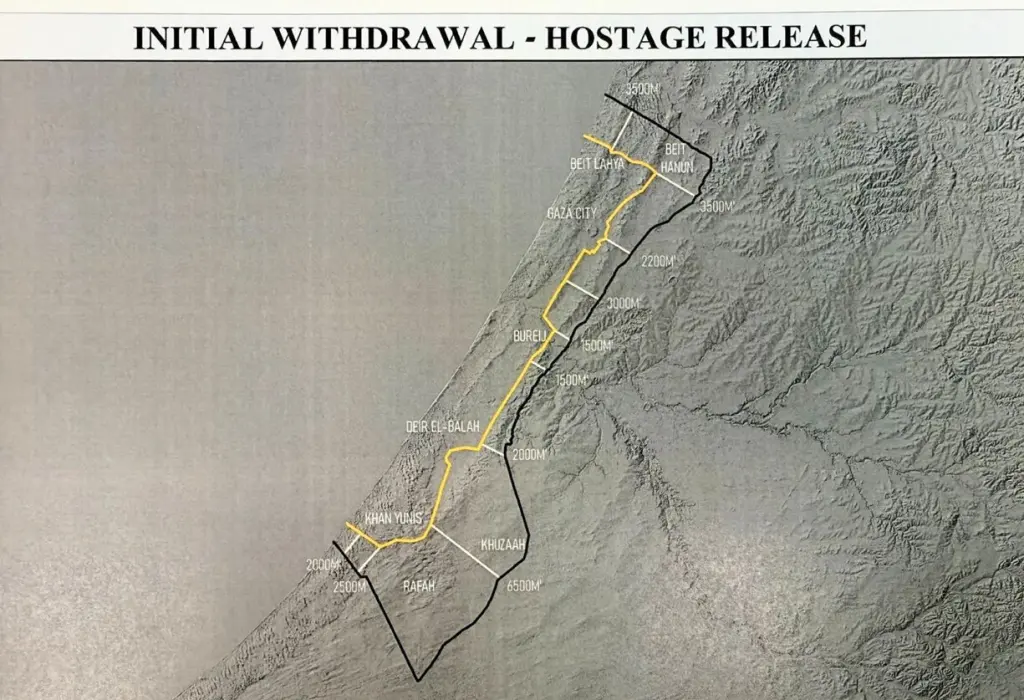
Analysts, however, are approaching the announcement cautiously. Experts point out that similar agreements have faltered in the past when subjected to political pressure or sudden outbreaks of violence. “If this plan holds, it could be monumental,” said Dr. Andrew Keller, a Middle East policy expert at Georgetown University. “But everything depends on verification, implementation, and — most importantly — trust, which remains incredibly fragile on both sides.”
Within Israel, reactions have been mixed. Some political figures have praised the agreement as a necessary step toward long-term stability, while others have expressed skepticism, citing concerns over Hamas’ intentions and the security implications of any troop withdrawal. “Peace requires strength, and Israel cannot afford to be naïve,” one Israeli lawmaker said in a televised interview.
For now, the world is waiting — for confirmation from Hamas, for further details from Washington and Jerusalem, and for signs that the cease-fire could finally take hold. If the plan succeeds, it could open the door to renewed peace talks and broader regional cooperation, with Egypt, Jordan, and Saudi Arabia all expected to play roles in the process.
As the situation continues to unfold, Trump’s announcement has once again placed him at the center of global attention — as both negotiator and narrator of a complex story that has spanned generations. Whether this proposed withdrawal marks the start of real progress or another fleeting moment of hope remains to be seen. But for many watching around the world, even a small step toward peace feels like something worth holding onto.
